Attorney-General emphasises asset recovery over prolonged trial in Unibank case
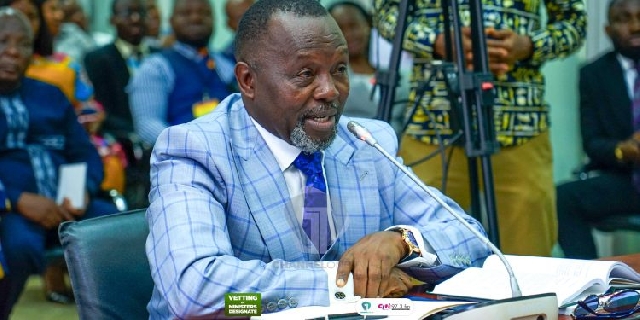 Dr Dominic Ayine
Dr Dominic Ayine
Attorney-General and Minister for Justice, Dr. Dominic Akuritinga Ayine, has defended his decision to discontinue the criminal prosecution of former Finance Minister Dr. Kwabena Duffuor and others involved in the high-profile UniBank case, citing a strategic shift towards non-conviction-based asset recovery as a more effective means of safeguarding the state’s interests.
Speaking during the Government Accountability Series briefing, Dr. Ayine explained that on July 22, 2025, the state entered a nolle prosequi in the case of The Republic vs. Kwabena Duffuor and Seven Others, effectively ending the criminal trial.
The decision, he said, was the outcome of months of negotiations between state prosecutors, the Receiver of UniBank, and legal representatives of the accused.
The case, which initially involved a reported GH¢5.7 billion financial exposure to the state, was reassessed following a reconciliation exercise.
The revised figure now stands at GH¢3.3 billion, after removing GH¢2.1 billion in fictitious accounting entries and excluding GH¢300 million deposited with Unisecurities—a firm already under liquidation by the Securities and Exchange Commission.
As part of a negotiated settlement, the accused parties proposed a structured recovery plan totalling GH¢2 billion.
This includes:
GH¢824 million in landed property already transferred to the UniBank Receiver;
Assistance in recovering GH¢1.2 billion from third-party beneficiaries;
A pledge to cover any shortfall resulting from asset sales.
So far, GH¢500 million of the GH¢1.2 billion has been recovered, with the remainder expected over the next 18 months.
Dr. Ayine emphasised that while a full cash settlement would have been ideal, the structured agreement offers a more realistic and timely path to recovery, avoiding years of costly and uncertain litigation. Oversight of the process will be maintained by his office, the Bank of Ghana, and the Ministry of Finance.
Responding to public backlash and claims that the accused were allowed to “keep 40% of the loot,” Dr. Ayine strongly rejected those assertions.
He clarified that the charges did not involve theft of public funds but were based on offences such as causing financial loss to the state and falsifying accounts.
“The evidence did not establish that any of the accused personally enriched themselves,” he stated.
He also stressed the limitations of criminal prosecution in securing financial restitution, citing past cases like Bej Capital, where a GH¢10 million recovery offer was rejected in favour of trial—only for the state to ultimately recover nothing.
Dr. Ayine pointed to existing legal provisions that support negotiated settlements in financial crime cases. He referenced Section 35 of the Courts Act (Act 459) and the Plea Bargaining Act, which provide a legal framework for restitution-based resolutions in appropriate cases.
He noted that while his office remains committed to seeking custodial sentences where warranted, a flexible, results-oriented approach was necessary to protect the public purse.
Updates on Other High-Profile CasesDr. Ayine also provided updates on several ongoing investigations and prosecutions:
BoG Governor Ernest Addison: Trial is ongoing, with prosecution witnesses being presented.
SkyTrain Project: Proceedings continue despite delays due to changes in legal counsel and health-related issues.
National Service Scheme Fraud: Investigations into the GH¢189 million BoG transfer are advancing. So far, GH¢80 million remains unaccounted for. Eight suspects, including former NSS officers, are cooperating through plea negotiations.
Other Cases: Dockets on the All-Africa Games scandal, buffer stock mismanagement, and Akonta Mining are completed or nearing the prosecution stage.
Concluding his remarks, Dr. Ayine reiterated that his prosecutorial strategy is focused on striking a balance between justice and effective financial recovery.
“Recovering stolen resources and jailing looters are not mutually exclusive,” he said. “But where conviction is uncertain and assets may be lost forever, recovery through negotiation is not a compromise—it is accountability.”
He reaffirmed his commitment to holding wrongdoers accountable—whether through the courts or through lawful settlements that prioritise the national interest.
Source: Classfmonline.com/Pearl Olennu
Trending News

Over 97,000 students reimbursed under gov't's "No Fees Stress" – Minister reveals
03:14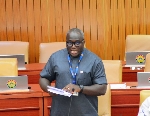
Kumawu MP decries 'Inhumane' feeding rate in Ghana’s prisons
05:59
Defence Ministry uncovers another incident of ammo theft
02:42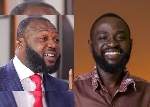
Ato Essien’s failing health raises urgent questions: Are Ghanaian prisons becoming a place of silent execution?
11:23
Ato Essien critically ill in prison, do we leave him there? – John Apea urges clemency
14:06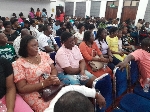
Record-breaking Europe summer camp set to inspire Ghanaian youth
05:53
President Mahama pays glowing tribute to late President Atta-Mills on 13th anniversary
12:11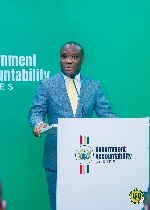
Attorney-General to address Unibank, ORAL and ‘rumble in the jungle’ case at Gov't Accountability Series on Monday – Minister
10:50
Ato Essien's plea bargain was fueled by fear- KSM reveals
13:57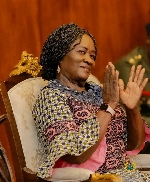
Vice President pays courtesy call on Oguaa Omanhen at Emintsimadze palace
08:48




